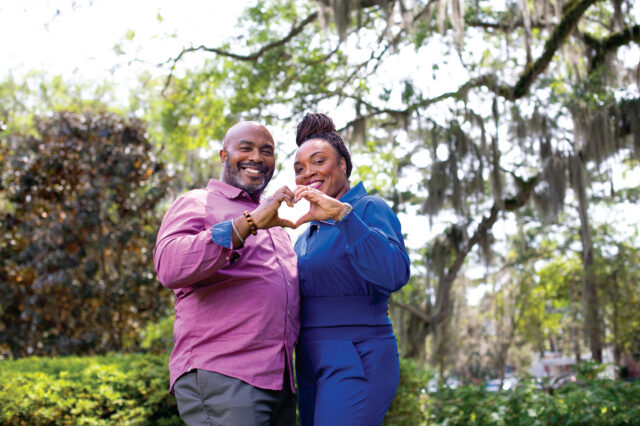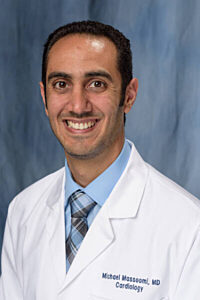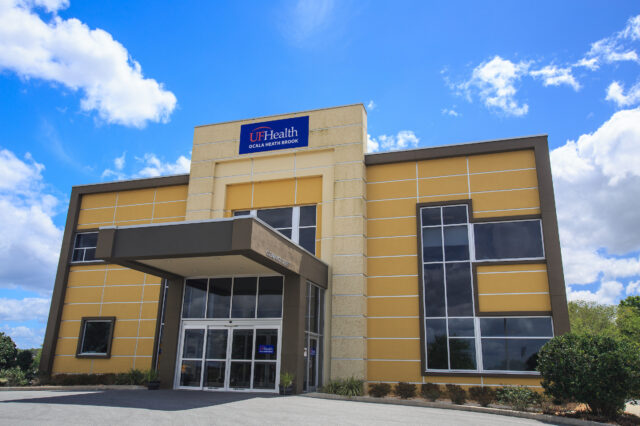Why choose UF Health?
UF Health’s Heart Valve Disease Program combines the latest technology and minimally invasive therapy options for our patients that promote healing and recovery. Our cardiologists and cardiovascular surgeons work side-by-side to care for patients with valve diseases, and have been performing heart valve repairs and replacements for more than 20 years. Our experts are at the forefront of the latest research to advance new technologies and treatment options for the most complex, high-risk cases.
Accolades
Some of UF Health’s Heart Valve Disease Program achievements include:
- Among the first in Florida hospitals to offer transcatheter aortic valve replacements
- Sub-specialized expertise of interventional cardiologists and cardiac surgeons who have been performing heart valve repairs for more than 20 years
- Advanced technologies in the UF Health Cardiac Catheter Lab and in the hybrid cardiac and vascular ORs within the UF Health Heart & Vascular Hospital
- Offering treatment options and therapies only available at UF Health
- Our experts perform a high number of complex valve and aortic operations, resulting in outstanding expertise and excellent outcomes for our patients
Conditions and treatments
Valvular procedures focus on the four valves of the heart that keep blood moving through the heart’s chambers. These include the mitral valve (sometimes called the bicuspid valve), the tricuspid valve, the aortic valve, and the pulmonary valve. Our experts offer a wide range of surgical procedures and specialize in the following conditions and treatments:
- Aortic and Biscupid Aortic Valve Repair/Replacement
- Marfan’s Syndrome Valve Repair
- Mitral Valve Repair/Replacement
- MitraClip™
- Tricuspid Valve Repair/Replacement
- Transcatheter Aortic Valve Replacement (TAVR) – minimally invasive
- Transcatheter Mitral Valve Replacement (TMVR) – minimally invasive
Minimally invasive procedures – TAVR and TMVR – offer several benefits that open-heart surgery does not, including:
- A small incision in the groin or chest rather than one large incision through the breastbone (sternum)
- Less need for blood transfusions
- Shorter hospital stay
- Faster recovery
At UF Health, our team performs two types of minimally invasive heart valve repair and replacement:
TAVR, or transcatheter aortic valve replacement, replaces a malfunctioning heart valve with a new one. It is used to treat aortic valve stenosis, a condition where the aortic valve narrows due to scarring or a congenital (present at birth) defect. When the valve narrows, it does not allow the blood to flow properly.
During the procedure, our cardiologists and surgeons insert a catheter (thin tube) into an artery in your leg or less often the chest. The physicians then place a valve which has been mounted on a catheter and guide it into your aortic valve. After the doctors position the new valve inside the damaged valve, the valve is expanded. This expansion pushes the pieces of the old valve safely out of the way. After TAVR, there is better blood flow from your heart to the rest of your body.
After the procedure, you will be in the hospital for one to two days. Your full recovery will take one to two months.
Transcatheter mitral valve repair (TMVR) with MitraClip™
TMVR, or transcatheter mitral valve replacement, with MitraClip™, repairs a malfunctioning and leaky mitral valve in the heart. TMVR is recommended for high-risk patients who are not candidates for open-heart surgery. It is used to treat mitral regurgitation, a condition where the mitral heart valve does not close correctly, allowing blood to leak backward into your heart towards the lungs.
During the procedure, our cardiologists and surgeons insert a catheter into a vein in your leg. The physicians then insert the MitraClip™ through the catheter and place it over the mitral valve tissue known as leaflets. This small, metal and polyester device allows us to repair your mitral valve instead of replacing it. The MitraClip™ holds the valve’s flaps together in the center, creating two new channels that reduce the blood flowing backward into the heart.
You should expect to spend one to two days in the hospital and one to four weeks recovering at home following the procedure. Your recovery time will depend on how healthy you are before TMVR.
Meet the team

















